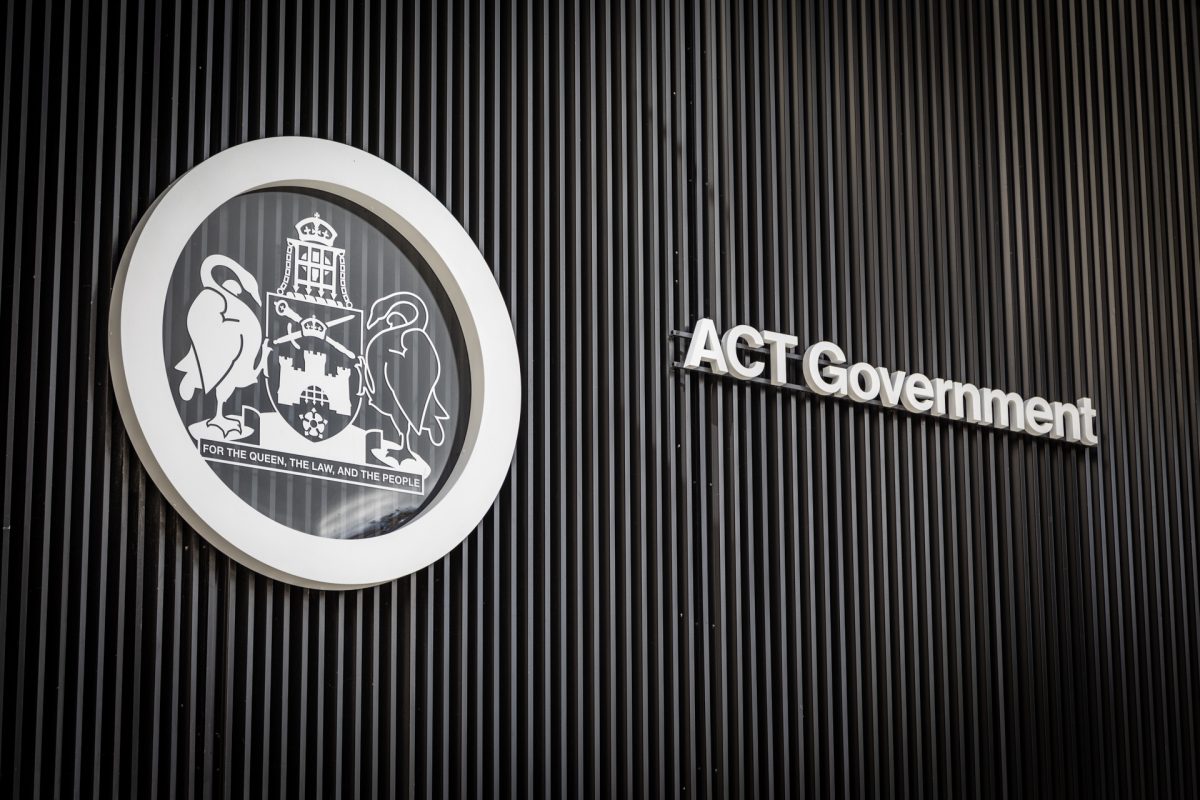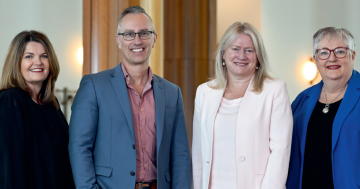
The ACT State of the Service 2024-25 reveals interesting data on bullying reports and the gender pay gap. Photo: Michelle Kroll.
The ACT’s Public Sector Standards Commissioner Ian McPhee completed 77 misconduct investigations in 2024-25, with 20 resulting in substantial findings against employees of the territory’s public service.
There were 100 such proceedings started in that period, up from 79 the previous year, but the number of those completed and those with adverse findings was down (from 80 and 32, respectively).
Bullying and harassment incident reports were made 625 times, including 16 for sexual harassment and eight for gender-based violence.
There were 110 bullying and harassment cases conducted, with 25 progressing to formal misconduct processes.
Only three cases resulted in a substantial finding of bullying or harassment, while 11 cases were still in process at the end of the financial year.
There were no incidents resulting in non-disclosure agreements.
The State of the Service Report 2024-25, showcasing the work and achievements of the ACT Public Service (ACTPS), reveals that 110 misconduct processes were referred to the Commissioner from across the sector.
That compares to 89 in the previous reporting period.
Of the 110 misconduct processes referred, 100 were received from directorates and 10 were referred by public sector bodies.
Of the 110 processes referred, 109 were allocated to the Professional Standards Unit (PSU) for investigation or the taking of admission statements.
One matter was managed using an external investigation service, with oversight by the PSU.
The most common types of conduct referred for investigation were: failure to treat people with courtesy, sensitivity and respect; behaviour inconsistent with public sector values; bullying and/or harassment; and failure to perform duties with reasonable care and diligence.
“Matters involving misconduct are to be promptly reported to the independent Public Sector Standards Commissioner,” the report states.
“Allegations of serious or systemic corrupt conduct are referred to the ACT Integrity Commission or the ACT Inspector of the Integrity Commission.
“Reporting and addressing misconduct and bullying is essential to creating a psychologically safe workplace.
“This adds to a positive environment where staff feel comfortable and supported to do their best work, improving the delivery of essential services to the Canberra community.”
There are 31,825 people employed in the ACTPS, with a full-time equivalent of 28,181.
The median salary in the ACTPS is $107,720; the average age of employees is 42; and the average length of service is eight years.
In 2024-25, the service had a 16.4 recruitment rate and a 7.6 per cent separation rate.
As at 1 July 2025, the ACTPS gender pay gap improved to a record low of -0.3%.
That negative percentage is indicative of a positive result for women, and the average salary of females in the service is now $114,910.
The ACT Public Service Gender Equity Strategy 2024–29, launched last year, continued to drive positive momentum in lowering the gender pay gap for the ACTPS workforce.
To position the ACTPS as an “employer of choice”, the service is also transitioning away from casual and temporary employment to permanent employment.
“This reflects the ACT Government’s recognition of the negative impacts of insecure work for our staff,” the report states.
Flexible working arrangements are also a high priority for the ACTPS.
“Hybrid work in the ACTPS continues to evolve, with innovation in workplace design and a strong focus on employee experience,” the report states.
“In 2024-25, we expanded our FlexiSpace network with a new location in Gungahlin, adding to hubs in Belconnen, Civic, Dickson, Tuggeranong and Woden.”
FlexiSpaces give staff more control over how, when, and where they work, helping to reduce commute times, encourage active travel, and be part of a broader set of hybrid work initiatives.
Original Article published by Chris Johnson on Region Canberra.










